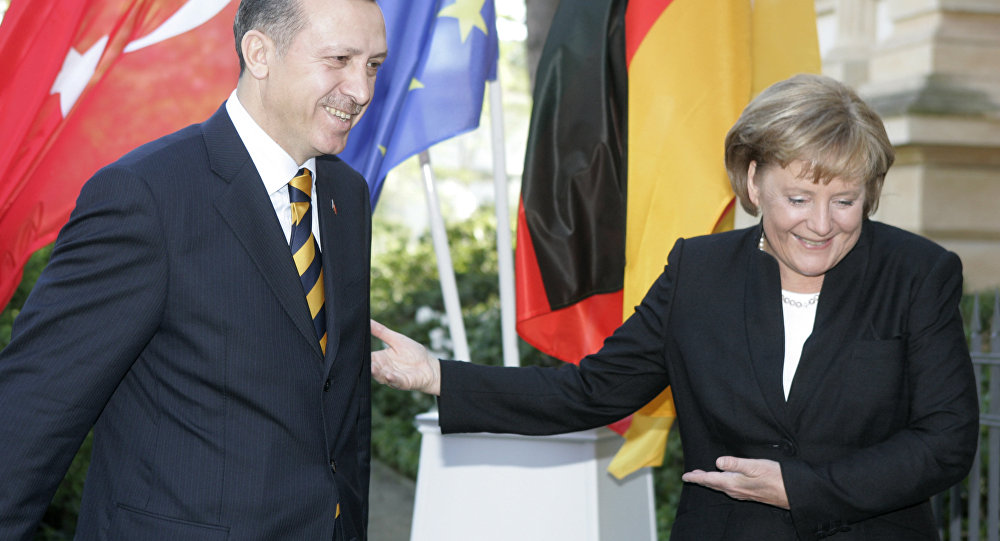German-Turkish Break Over Anti-ISIS Air Base Shows Depth of Rift

EghtesadOnline: Germany is poised to withdraw troops from an air base in Turkey, in a deepening estrangement between two NATO allies and trade partners.
Chancellor Angela Merkel’s cabinet plans to decide on Wednesday on moving surveillance planes involved in the fight against Islamic State from Incirlik to a base in Jordan. The latest flashpoint in the Turkish-German relations is a dispute over base access for German lawmakers and Turkish allegations that Germany is shielding fugitives from last year’s failed coup against President Recep Tayyip Erdogan, according to Bloomberg.
Merkel and Erdogan failed to resolve the conflict during a North Atlantic Treaty Organization summit last month. While economic ties between may be insulated from the strife, the two leaders will come face-to-face again when Merkel hosts a Group of 20 summit in Hamburg on July 7-8, less than three months before she seeks another term in Germany’s election.
“Turkey is building a new narrative of its own history and of its own mission, and German policy is in the way,” Guenter Seufert, a fellow at the German Institute for International and Security Affairs in Berlin, said by phone. “The crisis is going to continue.”
Turkish Foreign Minister Mevlut Cavusoglu on Monday rebuffed a last-ditch request by his German counterpart, Sigmar Gabriel, to allow visits to Incirlik by German lawmakers, whose access to foreign-based troops is an important symbol of civilian oversight of the armed forces.
Sheltering ‘Enemies’
Instead, Cavusoglu pressed Germany to extradite Turks who sought asylum in the country after the coup -- something Germany says is legally impossible -- and complained about the presence of Kurdish militants and followers of Islamic cleric Fethullah Gulen in Germany.
“Our friend Germany shouldn’t be a place for our enemies to find harbor,” Cavusoglu told reporters. Turkey views armed Kurdish groups and Gulen’s movement as terrorist organizations.
Business ties may be weathering the discord. Germany is Turkey’s top trading partner, with German imports expanding almost 7 percent last year to 15.4 billion euros ($17 billion), according to Federal Statistics Office data. Two-way trade increased 1.4 percent from 2015 to 37.4 billion euros.
For Merkel, the conflict surrounding Turkey’s main NATO base near the Syrian border comes on top of strain with President Donald Trump over Germany’s trade surplus with the U.S. and his demands to spend more on defense.
Broader Trouble
Merkel’s governing coalition, which includes her Christian Democrat-led bloc and Gabriel’s Social Democrats, approved the deployment of Tornado warplanes to help fight Islamic State in Syria and Iraq after the Paris terrorist attacks in November 2015.
Germany and Turkey have a prickly relationship even though they share a web of ties. Turks make up the largest ethnic minority in Germany, and Merkel took the lead in negotiating a landmark deal with Turkey to halt refugees from entering Europe, which survives despite repeated threats by Erdogan to tear it up.
Diplomatic tension has increased over the past year after Germany’s parliament recognized the century-old killings of Armenians by Ottoman authorities as genocide and Turkey arrested Deniz Yucel, a German-born reporter for Die Welt newspaper, in February on charges of spreading terrorist propaganda.
“This is about more than Incirlik,” Gabriel told Deutschlandfunk radio on Tuesday. “What’s at issue is the broader question of how we can make German-Turkish better again.”


